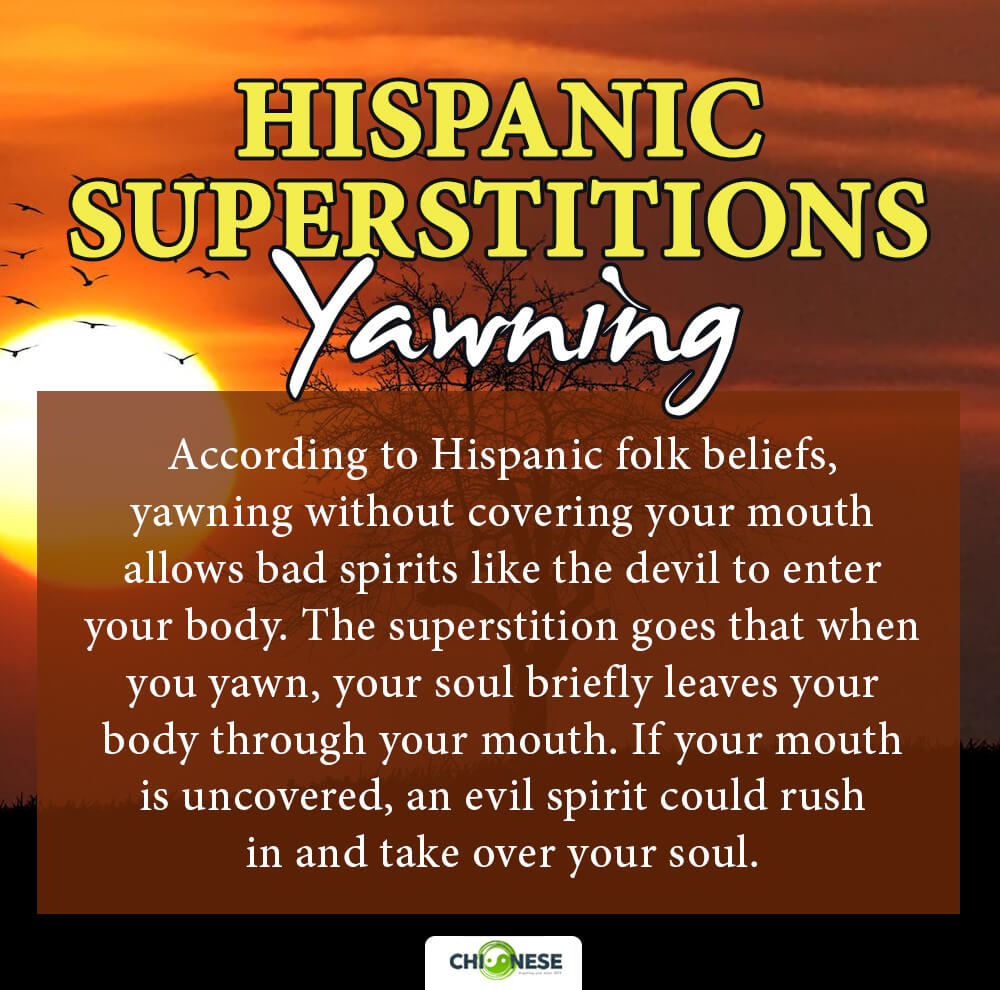You grew up hearing all kinds of superstitions and myths from your abuela or tías, but do you actually know what they mean or where they come from? Those spooky Hispanic superstitions you were told as a kid were more than just scary stories – they represent unique cultural traditions passed down through generations.
The Origins of Hispanic Superstitions
Hispanic superstitions have some interesting origins, coming from a mix of native beliefs from the areas colonized by Spain, Catholicism, which the Spanish brought over, and also old folklore from Europe. A lot of them are about avoiding bad luck or explaining weird things that happen.
I’m usually not one for superstitions myself, but my grandma used to always say that there’s usually a little bit of truth to the old sayings. Otherwise, they wouldn’t stick around for so long!
The Evil Eye (mal de ojo)
The evil eye, also known as mal de ojo, is one of the most well-known Hispanic superstitions. The evil eye refers to this belief that someone can cast a curse on you simply by giving you a malicious glare. People believe that this evil glare has the power to cause bad luck or even injury to the person on whom it’s cast. It’s seen as a way for envy or jealousy to physically harm someone.
To protect against getting an evil eye, many Hispanic cultures employ the use of charms. One of the most common is the azabache bracelet. Azabache is a type of black jet stone that is thought to ward off any negative energy from an evil glare.
Knocking On Wood (tocar madera)
A lot of cultures used to believe that spirits lived inside trees and could cause bad luck or harm if they were disturbed. So if you mentioned something good happening to you, like saying, “I hope it doesn’t rain on my birthday party,” people would knock on the wooden table or door frame to scare off any evil spirits that may have been listening.
They figured the spirits wouldn’t want to mess with the wood. It’s interesting because in some places, they had a similar custom, but instead of knocking on wood, they’d knock on something made of metal or stone since those materials don’t burn, unlike wood.
Tuesday The 13th (martes trece)
In Hispanic cultures, they think Tuesday the 13th is just as bad as Friday the 13th here in the States. They say you shouldn’t plan anything important on that day if you can avoid it. For major life events like weddings, starting a new job, moving houses, people will go out of their way not to schedule them on a Tuesday the 13th if possible.
Owls (lechuzas)
Owls are seen as witches or harbingers of death. Some Hispanic folklore says that if you hear an owl hooting at night, it means that someone is going to die soon.
Crows (cuervos)
Crows are also seen as an omen of death or tragedy. Apparently, if you see three crows sitting or flying together, it’s supposed to mean that someone is going to die within the next week.
Broken Mirrors (espejos rotos)

Broken mirrors hold a special significance in many Hispanic cultures. Just like in some other parts of the world, if a mirror breaks, it’s said to bring seven years of bad luck. The belief is that when a mirror shatters, it allows spirits to pass through the broken fragments and enter our world. It makes sense when you think about it – mirrors are supposed to reflect reality, so if one cracks, it could create an opening for supernatural forces.
Spilling Salt (derramar sal)
My grandmother used to say that if you spilled salt at the dinner table, you had to toss a pinch of it over your left shoulder to ward off bad luck.
She claimed it was because the left side represents the devil, and tossing salt that way would get some in his eye and blind him so he couldn’t cause you any trouble.
Sweeping At Night Will Sweep Away Good Luck And The Family’s Wealth
Apparently, you’re supposed to get all your sweeping done before the sun goes down. Something about how sweeping after dark will brush away all the prosperity and good fortune you’ve accumulated.
Yawning Without Covering Your Mouth Allows The Devil To Enter
According to some Hispanic folk beliefs, yawning without covering your mouth allows bad spirits like the devil to enter your body. The superstition goes that when you yawn, your soul briefly leaves your body through your mouth. If your mouth is uncovered, an evil spirit could rush in and take over your soul.
I remember my Abuela always reminding my cousins and me to cover our mouths when we yawned. She would say “cubre tu boca” which means “cover your mouth” in Spanish. She believed that if we didn’t, el diablo could sneak inside us. It was definitely an effective way to get us to mind our manners!
Whistling Inside
Some people say that if you whistle inside your home, it will bring you poverty and bad luck. The belief is that the whistling noise will scare away any good fortune or prosperity that you have. Some take it even further and say that whistling inside can attract evil spirits to your home.
Placing Your Purse On The Floor
This superstition means you’ll lose money. The idea is that leaving it down there is like inviting your cash to run away. Hang bags on the back of chairs or hooks instead.
Hanging Garlic
Hanging garlic by your front door or in the hallway is meant to keep devilish entities away. Something about the strong smell of garlic is supposed to ward off evil spirits or demons.
Other Famous Hispanic Superstitions
- Chamomile Bath: A ritual bath with chamomile flowers believed to cleanse the body and protect against evil spirits.
- Red Underwear on New Year’s Eve: Wearing red underwear on New Year’s Eve is believed to bring good luck and love in the upcoming year.
- Dropping a Broom: If you accidentally drop a broom, it is believed to bring unwanted guests or bad luck.
Final Words
Hispanic culture has all sorts of myths and superstitions that have been passed down through the years. A lot of these superstitions try to make sense of things that can’t be explained or get you good luck. Even if you don’t believe in superstitions, what’s the harm in keeping them in mind? I mean, that’s what my grandma always used to say, there has to be some truth to them, or else they wouldn’t still be around.








